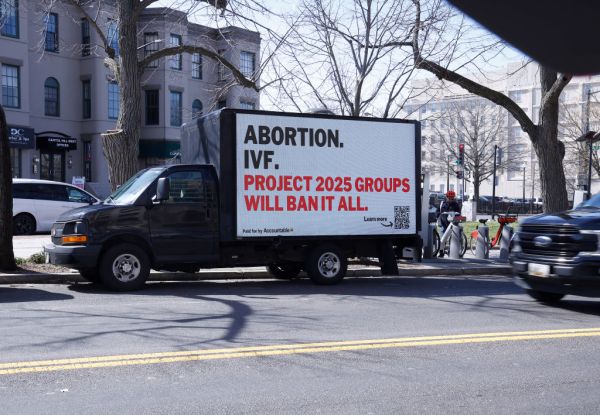Now that Donald Trump has won the election, Americans are speculating about what policies he will pursue when he returns to the White House—and turning their attention back to Project 2025, a series of policy proposals put forth by the Heritage Foundation, a conservative think tank. A Threads user with more than 15,000 followers has falsely claimed that Project 2025 proposes eliminating public education entirely.
“Under Trump, Project 2025 means public schools will cease to exist,” he wrote. “If you want your kids educated, you’ll be forced to home-school or pay for elite private schools. This plan kills public education entirely, obliterating access to learning for millions.”
This claim is false. Project 2025 does not call for ending public schools, and Trump distanced himself from the proposals during the campaign. The conservative blueprint favors strengthening school choice at the state level while cutting federal “regulation and red tape,” per the Project 2025’s section on education policy. “The future of education freedom and reform in the states is bright and will shine brighter when regulations and red tape from Washington are eliminated. Federal money is inevitably accompanied by rules and regulations that keep the influx of funds from having much, if any, impact on student outcomes,” writes Lindsey Burke, director of the Center for Education Policy at the Heritage Foundation, in the chapter on education. Project 2025 also suggests prioritizing school choice in neighborhoods with poorly performing public schools. “Washington should convert some of the lowest-performing public school systems in the country into areas defined by choices, creating rigorous learning options for all children and from all backgrounds, income levels, and ethnicities.”
Nonetheless, education would remain publicly funded under Project 2025. “All families should be able to take their children’s taxpayer-funded education dollars to the education providers of their choosing,” Project 2025 proposes, "whether it be a public school or a private school.” Project 2025 cites an Arizona school choice program that, starting in 2022, provided all families the choice to take “roughly 90 percent of what the state would have spent on that child in public school to be used instead on education options such as private school tuition, online courses, and tutoring.”
Project 2025 does call for the elimination of the U.S. Department of Education, but getting rid of the department would also not eliminate public education. The department wasn’t established until 1979, and most funding for public education comes from state and local sources. “The Department of Education has a few main functions, including: handle federal financial aid, conduct and disseminate research, and prevent discrimination,” Audrey Baker previously wrote in The Dispatch. “With 4,400 employees, it is the smallest Cabinet-level department.”
According to a July report from the Education Data Initiative, a research group that publishes data on the U.S. education system, K-12 schools receive a total of $119.1 billion in federal education funding annually, while states provide $383.9 billion in funding. Local governments add a further $375.2 billion in educational funding each year. All together, federal tax dollars make up only 15.7 percent of public education funding. And even though Project 2025 proposes eliminating the Department of Education, it does not call for ending all federal education programs and funding handled by the agency—some would be retained or reformed under different federal agencies. “The next Administration will need a plan to redistribute the various congressionally approved federal education programs across the government,” Project 2025 states, “eliminate those that are ineffective or duplicative, and then eliminate the unproductive red tape and rules by entrusting states and districts with flexible, formula-driven block grants.”
If you have a claim you would like to see us fact check, please send us an email at factcheck@thedispatch.com. If you would like to suggest a correction to this piece or any other Dispatch article, please email corrections@thedispatch.com.







Please note that we at The Dispatch hold ourselves, our work, and our commenters to a higher standard than other places on the internet. We welcome comments that foster genuine debate or discussion—including comments critical of us or our work—but responses that include ad hominem attacks on fellow Dispatch members or are intended to stoke fear and anger may be moderated.
With your membership, you only have the ability to comment on The Morning Dispatch articles. Consider upgrading to join the conversation everywhere.